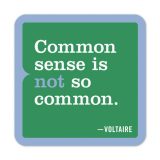Surveillance prohibited during court-ordered medical examination.
On June 28, 2017, a judge of the BC Supreme Court prohibited a defendant from conducting video surveillance of a plaintiff who is compelled to attend a defence medical examination in a personal injury lawsuit. Rule 7-6(1) of the Supreme Court Civil Rules allows compulsory examinations where the physical or mental condition of a person is in issue in an action. For many years defendants, or their insurers, have used these examinations as opportunities to conduct covert surveillance of plaintiffs in personal injury and disability lawsuits. This practice was considered by...
read moreExpert evidence not needed if common sense prevails.
On June 23, 2017, the BC Supremc Court considered the use, and overuse, of expert evidence in personal injury litigation. Truax v. Hyrb, 2017 BCSC 1052, was an action arising out of a motor vehicle accident in which fault was at issue. The defendant brought an application seeking a dismissal of the lawsuit and argued that in failing to adduce expert engineering evidence an adverse inference should be drawn against the plaintiff. In rejecting this argument, Mr. Justice Dley provided the following comments about the role of expert evidence:...
read moreSecond defence medical exam denied.
On March 23, 2017, the Supreme Court of BC denied the defence request for an medical examination by a vocational psychologist due to the fact that the defence had a previous medical examination by a defence psychiatrist (from whom they had no ordered a report). In Baxter v. Shelton, 2017 BCSC 953, Master Keighley wrote: [6] …counsel for the defence determined to have a vocational rehabilitation assessment done and scheduled an appointment for March 24, 2017, before Dr. Colleen Quee Newell,...
read moreInsurer irrelevant testing denied by court.
On December 16, 2016, a judge of the Ontario Superior Court of Justice dismissed an application by an insurance company for an order compelling a disabled worker to undergo neuropsychological testing. The judge in Woolsey v. Industrial Alliance Insurance and Financial Services Inc., [2016] O.J. No. 6497, 2016 ONSC 7617, found that neuropsychological or cognitive function had not been put at issue and no treatment providers or experts had recommended it. The claimant was a disabled employee who alleged that he was unable to work as an engineering analyst due to neuropathic chest pain...
read moreUsing articles cited in expert reports in evidence.
On September 19, 2016, a judge of the BC Supreme Court held that articles cited in expert reports are not “evidence”. However, the judge went on to outline how these documents may be used at trial. In Cambie Surgeries Corporation v. British Columbia, 2016 BCSC 1739, the plaintiffs, who are suing the government of BC in the basis that certain Provincial health-care laws are unconstitutional, sought to introduce into evidence several articles and texts cited by their expert witnesses. Mr. Justice Steeves set out the limits and procedural use of such documents: 11] It...
read moreICBC loses claim of privilege over surveillance.
On August 2, 2016, a judge of the BC Supreme Court reversed a master’s order as “an error in law” and ordered ICBC to provide an investigative report and video to the plaintiff, Desiree Nadine Oates. In Oates v. Burton, 2016 BCSC 1428, Ms. Oates was injured in a motor vehicle accident and sued for damages. After retaining a lawyer she applied for disability benefits from ICBC, following which ICBC ordered surveillance. In the context of her injury lawsuit, Ms. Oates sought production of the surveillance and the investigator’s report but ICBC refused, arguing that the...
read more









